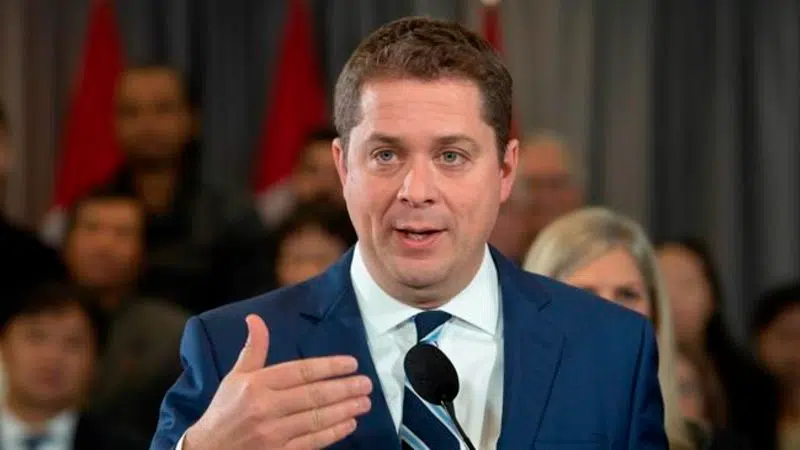
Scheer says platform will help unify Canada, in contrast to divisive Liberals
BRAMPTON, Ont. — Conservative Leader Andrew Scheer campaigned through some of the hottest battlegrounds in this election Saturday, facing questions about how far he’s willing to go to win.
He batted back the suggestion that in a bid to get votes, his platform favours Quebec over all other provinces, and flat out refused to address a report that his party hired an outside firm to “destroy” the other conservative party running in this election.
And as he repeated unsubstantiated claims that the Liberals and the NDP would form a coalition government that would seek to raise the GST and drive the country far deeper into deficit, he insisted that everything he’s brought to the table this election campaign was for the common good.
“Every morning we have gotten up and we have put forward a positive platform offering hope and opportunity for Canadians,” he said at a morning event in Toronto.


